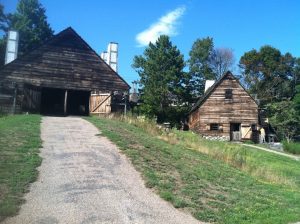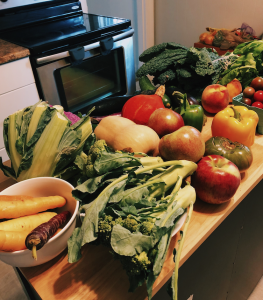
Written by Michael Ruiz, Bioengineering M.S. 2020
I am the only person in my family’s history to earn a bachelor’s degree. While more enrolled students in college are identifying as first generation, it is important to know that we are still an underrepresented population in higher education spaces.
I grew up in an underserved community of Los Angeles, and the only male role models in my family were incarcerated through much of my upbringing. At 19 years of age, my only academic achievement was that I had successfully failedout of high school. At this time, I knew college was not in the cards for me. I left high school in 2006 and by 2008, the U.S. economy had descended into a major recession.
As a young person with no formal education, I relied on temporary manual labor jobs to support myself. Somewhat surprisingly, I embarked on a journey towards the Midwest. I would come to call North Dakota my new temporary home. Eventually I worked my way out of the oil fields to complete my B.S. at Montana State University, then I conducted some post-graduate work at Harvard, and now I am a Bioengineering M.S. student at Tufts.
The lesson I’ve learned is that it is tough to be the first in your family to do this. I know this because despite the seemingly abundant opportunities to enter higher education that generations before me and after me have had, I remain the only person in my family to have completed an undergraduate degree. It is hard because your family may not understand seemingly esoteric subjects like Judith Butler’s doctrine on performative acts of gender, the laws that govern thermodynamics, and the exciting intersections of biology and physics.
My message to incoming undergraduate students: I didn’t attend Tufts as an undergrad. I wish I had! I’ve had the opportunity to work with talented undergraduates at Tufts and I feel like this talent is cultivated through Tufts’ curriculum. In my opinion, there is an extremely talented and innovative group of individuals here that easily rivals the other Boston-area schools.
My message to incoming graduate students: Find an advisor that you can vibe with. Interview as many potential thesis advisors as you can (if you don’t know what questions to ask, email me and I will give you an exhaustive list). Ask yourself: what kind of graduate experience do you want to have? Do you want to pursue an entrepreneurial, academic, or technical career? These are important questions you may not think to ask.
Lastly, you are not alone. I chose Tufts as my graduate destination because I am specifically interested in an education that combines rigorous engineering with entrepreneurial expertise. I am pleasantly surprised that many student groups share that vision. As someone who experienced a failing at early education, I can most certainly say that I have found a place at Tufts where I can grow.













